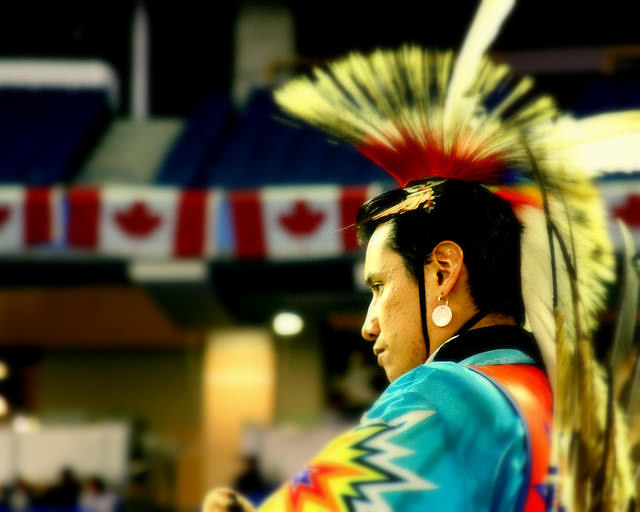Harper taps Aboriginal growth to grow our economy
The Harper government taps into the economic potential of the Aboriginal population
By: Caitlin McKay, Staff Writer
“You can’t just create a program, stick a feather in it and call it Native.”
Aboriginals saved European settlers from smallpox and now they might be able to save Canadians from economic disaster. To stimulate recovery, the Harper government is dipping into a mostly untapped labour reserve: the Aboriginal population. The Native population has the highest rates of poverty and unemployment in Canada and the fastest growing population of youth. To the government, Aboriginals are ripe and ready for the training.
The government has pledged $100 million to the Aboriginal Skills and Employment Partnership Program (ASEP). This employment training program is intended to incorporate Aboriginals into the economy and empower them to become financially stable. However, critics claim that economic centered programs will only damage Aboriginal communities.
“You can’t just take an economic development program, stick a feather in it and call it native,” explains Dr. Jeff Corntassel, an Associate Professor of Indigenous Governance at the University of Victoria. “You need to actually have some substance behind it that’s going to relate to community’s values and needs.”
[pullquote]You can’t just create a program, stick a feather in it and call it Native[/pullquote]Cornassel, who is also from the Cherokee Nation, is frustrated that the government’s plan seems to ignore Indigenous culture.
“I think we have to look at poverty from an indigenous perspective. It’s not just about economics. You’re really impoverished if you don’t have your culture,” he remarks. “We measure wealth by the extent of your generosity and … of your culture so we (Canadians) need to think more broadly about the questions of poverty.”
Dr. Cynthia Wesley-Equimaux, an Associate Professor at the University of Toronto’s Indigenous Studies program, has little faith in ASEP because there has been little consultation with the community.
“They [the government] sit up in their towers and they say ‘this is what we are going to do’,” Wesley, who is also a member of Chippewa of Georgina Island First Nation in Lake Simcoe, says. “It’s never worked. It just doesn’t help anyone. It gives people jobs but it does really nothing on the community level. It’s never enough and it’s never with the community.”
ASEP is designed to ensure Aboriginals are given support to develop skills that can answer to labour market demands. This initiative helps Aboriginals train to enter the trades, mines and infrastructure related jobs. However, this trade focused training limits Aboriginal’s opportunities to enter other professions.
“Training people to do those sorts of manual labour is not giving them the full spectrum of choice,” explains Carolyn Bennett, Liberal Critic for Aboriginal Affairs and Northern Development. “Aboriginals should have the same choices but the problem we are seeing now is in education. We only spend $7,000 dollars per Aboriginal child per year but non-Aboriginals get $10,000-$12,000. So, Aboriginals don’t get the quality of education and they are not able to have real choices if they don’t have a good basic education.”
Bennett urges the government to consider the future generations of Aboriginals rather than the short term needs of the economy.
“At the moment, the education gap between $7,000 and $12,000 needs to be closed. That is a seriously important investment for the federal government so they (Aboriginals) can be successful and contribute. It’s a matter of investment rather than just a cost. It’s not about saving money.”
ASEP and other programs like it might be a solution to Canada’s economic woes. But, unless properly implemented, ASEP could cost the government more in the long run.
The Minister for Aboriginal Affairs and Northern Development was contacted for an interview but was unavailable for comment.
Sources:
-Bahman
-Interview with Carolyn Bennett, MP
–Aboriginal Affairs and Northern Development Canada
–Human Resources and Skills Development Canada
–Aboriginal Affairs and Northern Development Canada
–Canada’s Economic Action Plan
–Aboriginal Affairs and Northern Development Canada
–Assembly of First Nations
–Carolyn Bennett, MP
ARB Team
Arbitrage Magazine
Business News with BITE.
Liked this post? Why not buy the ARB team a beer? Just click an ad or donate below (thank you!)
Liked this article? Hated it? Comment below and share your opinions with other ARB readers!































Share the post "Harper taps Aboriginal growth to grow our economy"